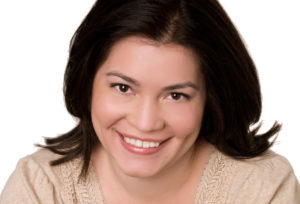Recently, romance author Courtney Milan was censured by romance writers’ professional organization, the Romance Writers of America (RWA). Milan, who is half-Chinese, called out racist stereotypes of half-Chinese women in a romance novel by Kathryn Davis on Twitter. In return, Davis filed an ethics complaint that the criticism was unfair and caused her to lose a three-book deal. Suzan Tisdale, Davis’ employer, also filed an ethics complaint that Milan asked her how many authors of color she had published and was critical of Tisdale’s answer, and that she had called Davis a racist. Milan called Davis’ book a “racist mess,” but there’s a difference between personally attacking an author and criticizing her book (if honest reviews are important to you, I hope you can tell the difference). None of this was a violation of the RWA’s ethics code, but the board suspended her for a year and banned her from holding leadership positions. Milan has worked to increase diversity and inclusion in the romance community, which is majority white, cis, and heteronormative, and that appeared to have had a positive effect on the RWA. The lack of transparency in making this decision led to outrage from many in the romance community, and many officers, committee members, and paid members of the organization resigned. If you subscribe to any major newspaper, there has probably been a mention of this controversy in it this week (here’s the Washington Post’s take, and the New York Times).
Beyond the individual support for Milan, a larger problem has come to light, and that is institutional and systemic racism in the RWA and the romance community. Bestselling authors, such as Nora Roberts, have condemned the racism and homophobia that have come to light while all of this has been unfolding. For those people who don’t follow romance or know who Nora Roberts is, she’s close to being the romance genre’s equivalent to Stephen King.
I am writing about the out-of-control events in the romance writing community because racist, bigoted, and homophobic behavior and writing is not limited to one genre writing community. It’s everywhere. The horror genre and the people who participate in it do not get to wash our hands and say “well, what does racism there have to do with us?” Like it or not, one of the greats of the horror genre is well-known for racist, xenophobic vitriol. That is not opinion, it’s fact. Just because he wrote a century ago doesn’t mean we can’t criticize Lovecraft’s work. It’s even productive to do so. Some really great horror fiction has been published that critique his racism and xenophobia, like Victor Lavalle’s The Ballad of Black Tom, Matt Ruff’s Lovecraft Country, and Ruthanna Emrys’ Winter Tide.
Let’s not pretend, either, that those are things of the past and we’re too enlightened to have them appear in the horror community, or horror fiction, today. It doesn’t have to be related to your personal politics, any of us can trip over a stereotype or a dog whistle (I certainly can’t claim to know them all). I’m pretty sure we’re all writers, reviewers, educators, librarians, or at least readers here, and that means we all know that words matter. It’s not a personal attack to point that out, it’s not being “too sensitive,” it’s an opportunity to do better for the horror genre and for ourselves.





Follow Us!